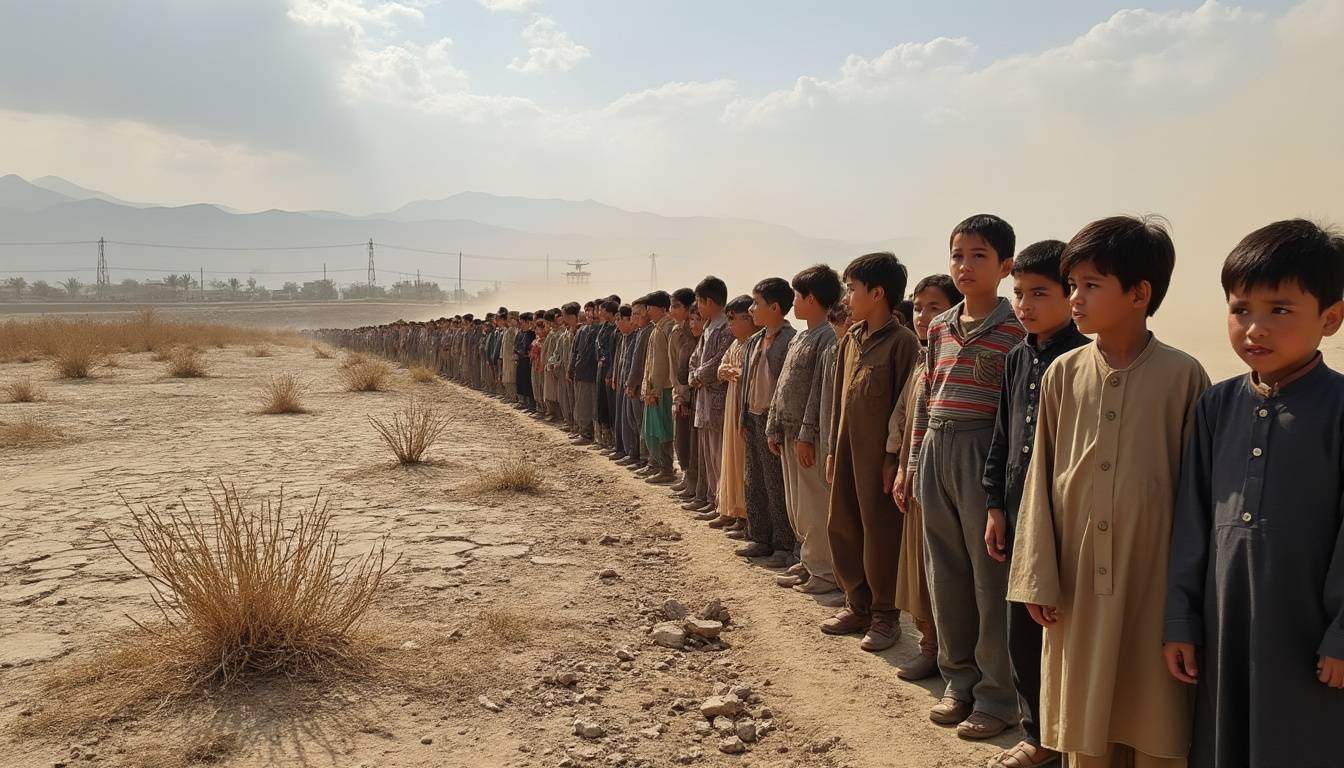In Kabul, an escalating drought has severely impacted the city’s water availability, forcing countless families into lengthy queues for scarce water supplies. This acute shortage is not only disrupting daily life but is depriving children of their fundamental right to education, as many are compelled to leave school to assist their families in collecting water. With Kabul’s population estimated at over six million, the crisis illustrates a critical intersection of environmental stress and social hardship.
Escalating Water Scarcity in Kabul Threatens Children’s Education and Well-being
The drought in Kabul has pushed many households to the brink, with traditional water wells drying up and groundwater levels plummeting. Up to 80% of the groundwater is contaminated with sewage, arsenic, and nitrates, further complicating access to safe drinking water. The scarcity forces families into long queues at communal water taps or to spend large sums on water tankers, aggravating poverty and undermining the health and education of children.
- School closures: Many schools have been forced to shut down due to insufficient water supplies, interrupting academic progress.
- Time-consuming water collection: Children, instead of attending classes, spend hours each day hauling water, which affects their concentration and learning.
- Health risks: Contaminated water increases the likelihood of disease, impacting both children and the elderly.
This situation demonstrates the urgent need for integrated humanitarian efforts by organizations such as UNICEF, Save the Children, WaterAid, and World Vision, who are working to provide safe water access and support education continuity in the region.
Consequences of Unsafe Water and Community Responses
The contamination of groundwater is a pressing health crisis, with widespread exposure to toxins resulting in illnesses that disproportionately affect vulnerable groups. In response, local and international organizations including Oxfam, CARE International, and the International Rescue Committee have increased their interventions to improve water quality and sanitation.
- Installation of water purification systems
- Educational campaigns on hygiene and water conservation
- Distribution of water via tankers and community taps as emergency relief
These measures aim not only to preserve health but also to keep children in school by reducing the burden of fetching water, a challenge that occupies many young minds and bodies.
Climate Change and Its Role in Afghanistan’s Drought Impact on Education
Climate change has intensified drought frequency and unpredictability across Afghanistan, compounding the water access crisis in Kabul. Families have adapted by rationing, but the strain on education remains tangible. The need for comprehensive policies that address climate resilience and sustainable water management is critical for the future of Kabul’s children.
- Promotion of sustainable water use and recharge techniques
- Investments in climate-resilient infrastructure around water sourcing
- Support from agencies like the World Food Programme and Mercy Corps for livelihood preservation and food security
Efforts such as community-driven water management programs and educational support from the Norwegian Refugee Council are also vital in mitigating these challenges.
Innovative Approaches to Upholding Education Amid Water Crisis
Despite harsh conditions, innovative educational programs aim to reengage affected children. Remote learning tools, flexible school hours, and mobile classrooms help maintain access to education while addressing water scarcity challenges.
- Implementation of digital platforms tailored for disrupted learners
- Community awareness workshops led by NGOs to emphasize education importance
- Coordination among humanitarian actors for comprehensive support
Such strategies are vital for ensuring that children in Kabul do not lose the opportunity to learn in these difficult times.


